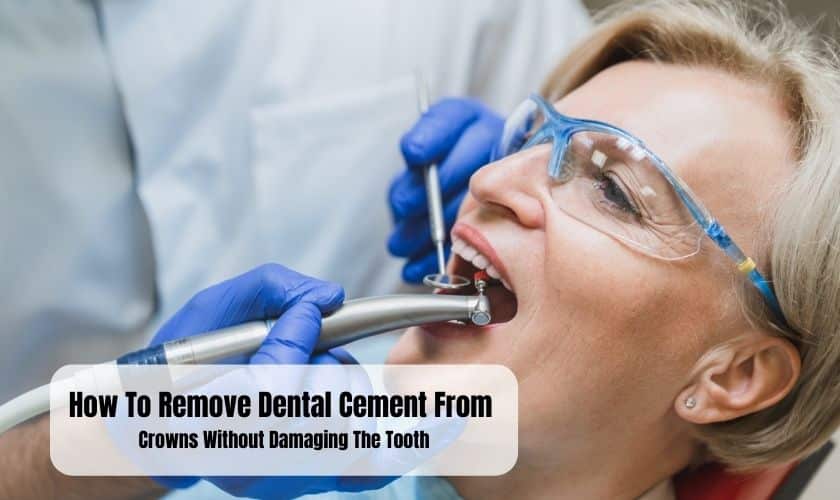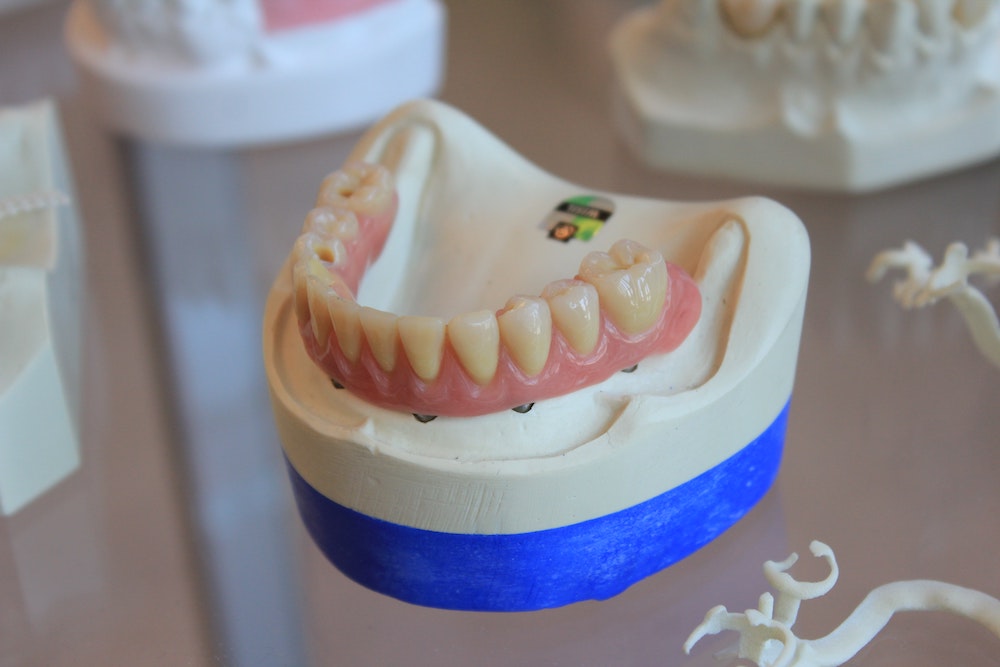To remove dental glue from teeth at home, gently brush with a soft toothbrush and toothpaste, then rinse with warm water. Dental glue can be stubborn, so be patient and persistent in your efforts to remove it effectively.
Having dental glue stuck on your teeth can be bothersome, but with the right approach, you can safely and effectively remove it at home. We will explore some simple yet effective methods for removing dental glue from your teeth without causing any damage.
Whether you’ve had a dental repair or accidentally got some glue on your teeth, these methods will help you achieve a smooth and clean finish. So, keep reading to learn how to remove dental glue from your teeth in the comfort of your own home.

Credit: abc123dental.com
Understanding Dental Glue
What Is Dental Glue?
Dental glue, also known as dental cement, is a type of adhesive used by dentists to bond materials to the teeth.
It is typically a resin that hardens when exposed to light or other catalysts, creating a strong, durable bond.
Common Uses Of Dental Glue
- Securing dental crowns or bridges in place
- Fixing loose or broken teeth
- Attaching braces or retainers
Potential Risks And Concerns
When removing dental glue from teeth at home, it’s essential to be aware of potential risks and concerns. Improper removal methods can lead to adverse effects and unnecessary damage to the teeth and gums. Understanding the risks associated with dental glue removal can help ensure a safe and successful process.
Adverse Effects Of Dental Glue
Using improper tools or techniques to remove dental glue can result in damage to the enamel, irritation to the gums, and even accidental ingestion of the adhesive. Furthermore, attempting to force the glue off can lead to chipping or breaking of the teeth. These adverse effects emphasize the importance of using gentle and precise methods for removal.
Importance Of Proper Removal
Proper removal of dental glue is crucial to prevent damage to the teeth and surrounding tissues. Using the appropriate tools and techniques helps minimize the risk of complications and ensures that the teeth remain intact and healthy. Additionally, timely and proper removal can alleviate discomfort and prevent prolonged exposure to residual adhesive.
Home Remedies For Removing Dental Glue
Discovering dental glue stuck to your teeth after a visit to the dentist can be a frustrating experience. However, there are several simple and effective home remedies that can help you remove dental glue safely and effectively. Let’s explore some of the best methods for removing dental glue at home.
Softening The Glue With Warm Water
Start the removal process by rinsing your mouth with warm water. The warm water helps to soften the dental glue, making it easier to remove.
Using Dental Floss Or A Toothpick
After softening the glue, carefully use dental floss to gently work the glue away from the teeth. Alternatively, you can use a toothpick to carefully scrape away the softened dental glue.
Applying Oil-based Products
Another effective method is to apply oil-based products, such as coconut oil or olive oil, to the affected teeth. These oils can help to dissolve and loosen the dental glue, making it easier to remove.
Utilizing Over-the-counter Adhesive Removers
If the above methods are not effective, you can consider using over-the-counter adhesive removers specifically designed for dental use. These products are formulated to safely dissolve and remove dental glue from teeth.
Credit: www.dentistrytoday.com
Professional Assistance And Advice
If you are facing challenges removing dental glue at home, seeking help from a dentist is crucial. Professional guidance is essential to avoid causing harm to your teeth.
Seeking Help From A Dentist
When struggling with dental glue removal, turning to a dentist ensures safe and effective solutions.
Importance Of Professional Guidance
Professional guidance guarantees proper techniques for removing dental glue and preserves the integrity of your teeth.
Preventing Dental Glue Mishaps
Learn how to effectively remove dental glue from your teeth at home with these simple and practical tips to prevent mishaps. Taking the right steps will help you maintain oral health and avoid any potential complications.
Tips For Avoiding Excessive Dental Glue:
The process of removing dental glue from teeth at home can be understandably concerning. However, there are preventive measures you can take to minimize the risk of excessive dental glue and ensure a successful dental procedure. Here are some helpful tips:
- Communicate with your dentist: One of the most important steps in preventing excessive dental glue is open communication with your dentist. Before the procedure, discuss your concerns and ask any questions you may have. This will help your dentist understand your expectations and ensure appropriate use of dental glue.
- Choose a reputable dentist: Selecting a reputable dentist is crucial to avoid any mishaps with dental glue. Research and read reviews to find a dentist with a track record of successful dental procedures.
- Follow the dentist’s instructions: Your dentist will provide specific instructions for post-procedure care. It is essential to follow these instructions diligently to prevent any complications or excessive dental glue. This includes following the recommended oral hygiene routine, such as brushing and flossing regularly.
- Be cautious with adhesive products: While adhesive products available in stores may seem convenient, it is best to avoid using them without consulting your dentist. Using over-the-counter dental adhesives can lead to excessive glue and may worsen the situation.
Proper Aftercare For Dental Procedures:
After undergoing a dental procedure involving dental glue, it is crucial to provide proper aftercare to ensure optimal healing and prevent any mishaps. Here are some essential steps to include in your aftercare routine:
- Keep the area clean: Maintaining good oral hygiene is crucial after a dental procedure. Gently brush your teeth and gums using a soft-bristled toothbrush to avoid damaging any bonds created by the dental glue.
- Avoid sticky and hard foods: During the initial healing period, it is recommended to avoid sticky or hard foods that may dislodge or damage the dental glue. Stick to softer, easily chewable foods to decrease the risk of complications.
- Avoid excessive pressure: Be cautious not to apply excessive pressure on the treated area. Avoid biting on hard objects or using your teeth to open packages, as it may cause the dental glue to weaken or break.
- Attend follow-up appointments: Attending scheduled follow-up appointments with your dentist is essential. These appointments allow your dentist to assess the healing progress, make any necessary adjustments, and address any concerns you may have.
By implementing these preventive measures and adhering to proper aftercare routines, you can significantly reduce the chances of encountering dental glue mishaps and ensure a successful dental procedure.

Credit: eurodenture.com
Frequently Asked Questions On How To Remove Dental Glue From Teeth At Home
Can Dental Glue Be Removed?
Yes, dental glue can be removed easily using dental floss or a toothbrush.
What Breaks Down Dental Glue?
Water, saliva, and acidic foods can break down dental glue over time. Proper care and regular dental checkups can help maintain the strength and longevity of dental adhesives.
How Do You Remove Dental Cement From Teeth?
To remove dental cement from teeth, visit a dentist for professional removal. Avoid picking at it yourself to prevent damage.
How Do You Remove Denture Adhesive From Teeth?
To remove denture adhesive from teeth, brush gently with a soft-bristled toothbrush and a mild cleanser. Rinse with warm water.
Conclusion
To wrap up, removing dental glue from teeth at home can be done effectively and safely. By following simple steps and using household items, you can achieve positive results. Remember to be gentle in your approach and seek professional advice if needed.
Your dental health is important, so take care of it diligently.
